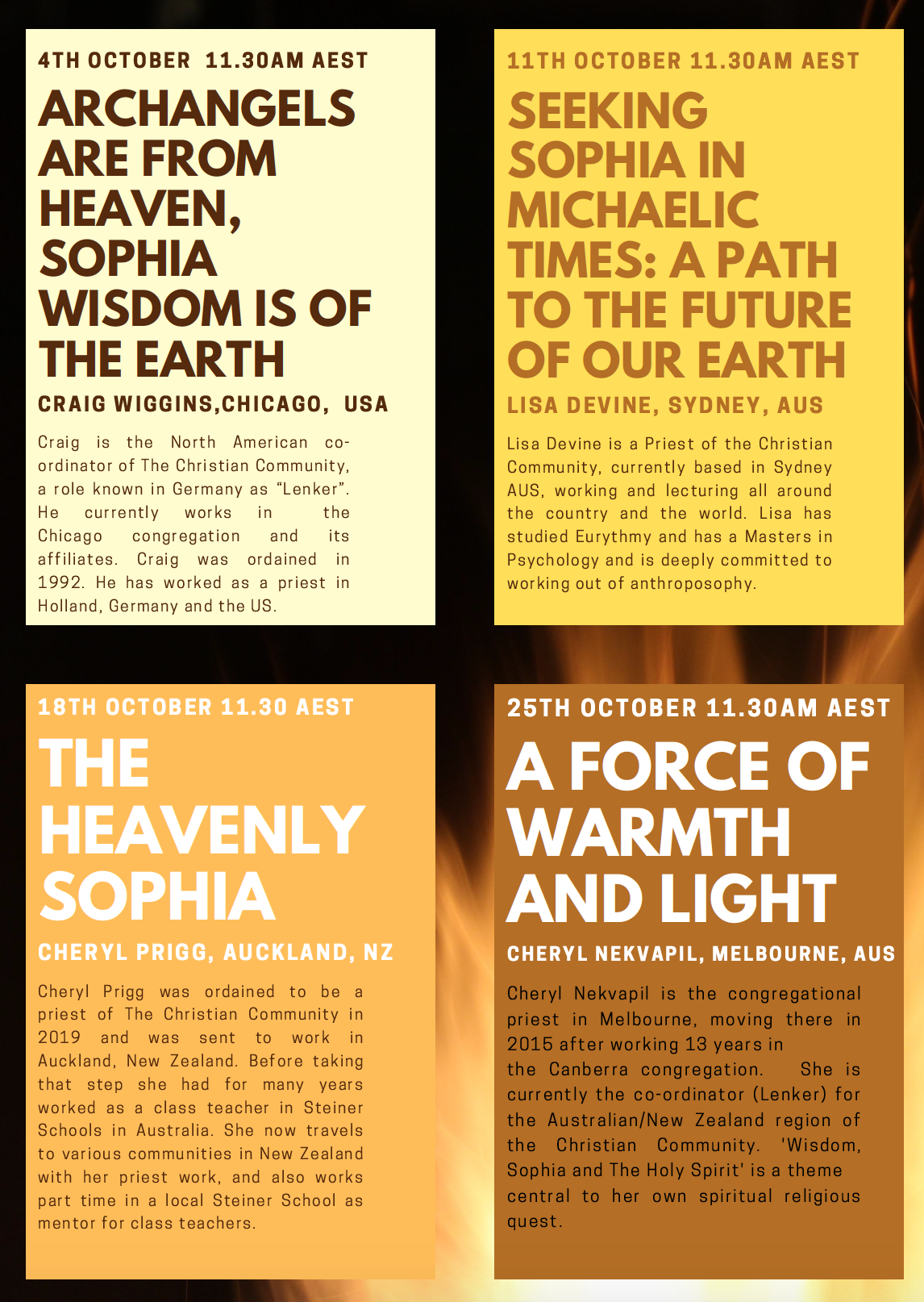Stand Up!
STAND UP (Lk.7:11-17)
Wherever we go or stay, we are everywhere surrounded by the dying earth existence. Nearly a hundred years ago, when The Christian Community was founded, this expression, which sounds in our Creed, was virtually unknown. Admittedly, death was very much present in the war that preceded the founding of The Christian Community, but a dying earth existence…? At the time, probably no one could grasp the scope of this expression.
In our time, we all know in fact from our own experience what these words signify, even though there continue to be people who deny a crisis. Wait but a few decades, and no one will be able to deny anymore that we are surrounded by the dying earth existence.
Not only is the earth around us dying, but also the earth we take into ourselves. Everything we take in—food, drink, air, sense impressions, thoughts—has to die completely to be able to serve us. We human beings are the cause of countless forms of death on earth.
An old legend tells that, after Adam was expelled from Paradise, at each footstep the grass withered under his feet. In a certain sense, this legend has become reality.
Despite our leading role in this death process, through Christ—so says our Creed—we attain the re-enlivening of the dying earth existence. Does that happen exclusively through Christ? Or are there ways in which we can help Him renew life? Christ bears and orders the life of the world. How can we help Him bear and order?
Look into the world through the eyes of Christ—and the world appears in a new light.
Hear Him speak before you say a word—and your words will have wings.
Take Him into your thinking—and your thoughts will become more lucid.
Ask Him to go with you—and your feet will be guided.
And even though we are bound hand and foot to the dying earth existence, He will speak to us, even when we die: Stand up!
–Rev. Bastiaan Baan September 27, 2020

